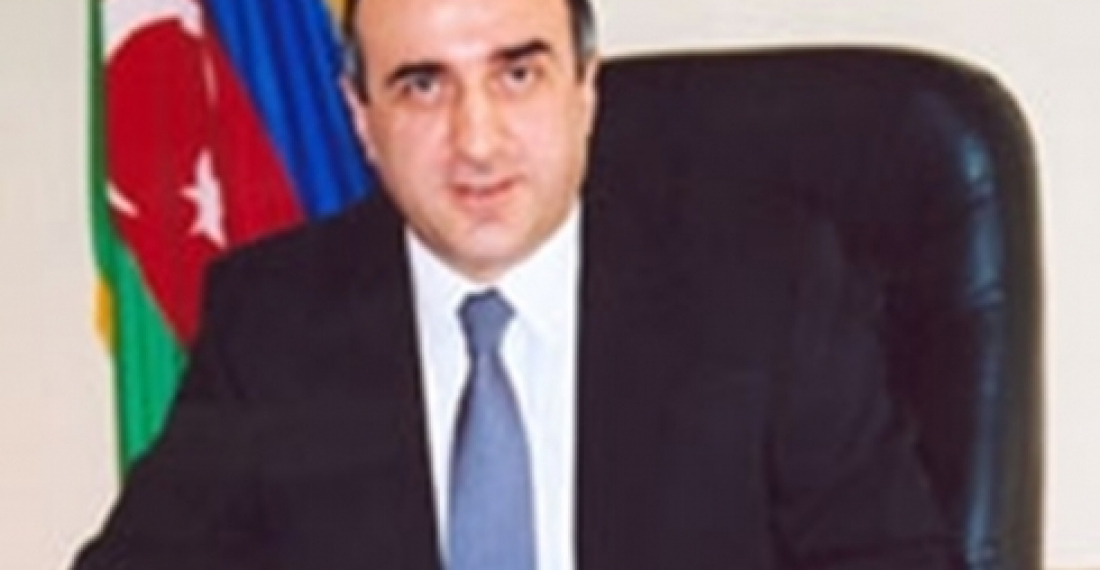The Foreign Minister of Azerbaijan, Elmar Mammadyarov, on Tuesday addressed representatives of the 57 member states of the Organisation for Security and Co-operation in Europe (OSCE) at a meeting of the Organisation's Permanent Council in the Austrian Capital, Vienna.
Outlining his country's support for the OSCE as a platform for addressing security threats and its historic success in forging consensus between diverse states, he urged states to use the ongoing Helsinki+40 process to strengthen the OSCE as an "action-oriented organization" in the run up to the 40th anniversary of the Helsinki Final Act in 2015.
According to the website of the organisation, www.osce.org, Mammadyarov told the diplomats gathered in Vienna that the "comparative advantage lies in its comprehensive security concept" and stressed its role in enhancing security for countries not part of other security groupings.
Calling for wider discussion within the OSCE on protracted conflicts, including on Nagorno Karabakh, he said: "Azerbaijan believes the potential for reaching peace on the Armenia-Azerbaijan conflict is not exhausted." He said that there was a need to "reinvigorate" the Minsk Group format, urging "more substantive talks, not just talks for talks."
Addressing the OSCE's work in Azerbaijan, Mammadyarov stated his country's intention to invite international monitoring teams to observe the upcoming presidential election, in line with OSCE commitments. He also reiterated Azerbaijan's desire to review the status of the OSCE presence in the country, suggesting that its work could be refocused on project coordination.
Mammadyarov was speaking at a special session of the OSCE Permanent Council. He previously addressed the Permanent Council in 2004.
Commonspace.eu political editor commented on the speech of the Azerbaijani Foreign Minister:
"Azerbaijan has on the one hand understood the important role that the OSCE can play in underpinning security on the European continent. For a non aligned country such as Azerbaijan this role is crucial and significant, and it is right that Azerbaijan should be on the forefront of the debate about how the organisation can in the future contribute to the security of its member states. However Mammadyarov's speech indicates that Azerbaijan seems to think that it can pick and choose from the organisation's roles and duties. The role of the OSCE, as the guardian of the Helsinki Final Act and subsequent pan European agreements, is holistic. It is equally about human rights and basic freedoms as it is about military security. Trying to change this is tantamount to taking the process back to the pre Brezhnev era.
Azerbaijan's attempt to change the mandate of the OSCE office in Baku is unacceptable to many of the member states. Western diplomats complain that the attitude of Azerbaijan in the OSCE Permanent Council is sometimes arrogant and cynical. Part of this is a result of Azerbaijan's frustration at lack of progress in the talks mediated by the OSCE, through its Minsk Process for a resolution of the Karabakh conflict, and is understandable. But it is also a reflection of Azerbaijan's refusal to accept constructive criticism on its record on democratic governance and human rights. By confusing the two issues Azerbaijan is doing much harm to its cause. It is up to Azerbaijan to decide about its relations with the OSCE as long as it understands that the OSCE is a set menu organisation and not a la carte."
source: commonspace.eu with www.osce.org
photo: Azerbaijan Foreign Minster Elmar Mammadyarov







